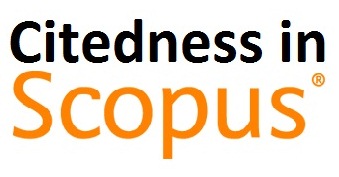AI in Dermatology: A Systematic Review on Skin Cancer Detection
DOI:
https://doi.org/10.38043/tiers.v5i1.5444Keywords:
AI, Dermatology, Detection, Skin CancerAbstract
Skin cancer is the most common type of cancer worldwide and poses a significant public health challenge. Its visible nature often leads individuals to seek medical attention, highlighting the importance of early detection for better patient outcomes. In recent years, Artificial Intelligence (AI) has shown promise in improving the detection and diagnosis of skin cancer, offering the potential to enhance clinical outcomes. A systematic review was conducted, involving a comprehensive literature search to identify studies focused on AI techniques in detecting, diagnosing, or treating skin cancer. Strict inclusion and exclusion criteria were applied to assess the eligibility of scientific articles, resulting in the selection of nine relevant studies. These studies were analyzed to address predefined research questions about the effectiveness of AI in diagnosing skin cancer. The review found that AI-assisted clinicians achieved higher sensitivity and specificity in diagnosing skin cancer than those without assistance. Various AI algorithms demonstrated high sensitivity in detecting skin cancers, highlighting their potential to support primary care clinicians in evaluating suspicious lesions. The analysis also highlighted the effectiveness of smartphone applications designed for skin cancer risk assessment, which could facilitate self-examinations and enhance early detection rates. Despite these promising findings, the field of AI in skin cancer diagnosis is still in its early stages. Challenges remain, including developing robust algorithms, addressing data quality issues, and improving the interpretability of AI-generated results. Collaboration between AI developers and healthcare professionals is crucial to ensure these tools' clinical effectiveness and safety. The review emphasizes the need for continued validation of AI technologies and their integration into clinical practice to improve patient outcomes and alleviate the burden on healthcare systems.
Downloads
References
I. G. A. I. Yogiswara, H. Saputra, and N. P. Ekawati, Karakteristik pasien kanker kulit non-melanoma di RSUP Sanglah pada periode tahun 2014 - 2018, Intisari Sains Medis, vol. 12, no. 2, pp. 691694, Aug. 2021, doi: 10.15562/ism.v12i2.1080.
https://www.britannica.com/science/skin-cancer.
R. N. P. Fauziyyah, M. Komariah, and Y. K. Herliani, Sunlight Exposure and Protection Behavior as Prevention of Skin Cancer in Nursing Students, Indones. J. Cancer, vol. 17, no. 1, p. 1, Mar. 2023, doi: 10.33371/ijoc.v17i1.921.
M. Z. Oktora, Y. Haiga, and N. Liana, Peningkatan Pengetahuan Mayarakat terhadap Pengaruh Paparan Sinar Matahari yang dapat Menyebabkan Kanker Kulit, J. Pengabdi. Masy. KesehatanJURABDIKES, vol. 1, no. 2, pp. 2831, Dec. 2023, doi: 10.56260/jurabdikes.v1i2.105.
N. Arivazhagan et al., Analysis of Skin Cancer and Patient Healthcare Using Data Mining Techniques, Comput. Intell. Neurosci., vol. 2022, pp. 19, Sep. 2022, doi: 10.1155/2022/2250275.
Md. R. Islam, S. Akash, A. Rauf, and R. Sharma, Skin cancer from the perspective of public health concerns: etiology, transmission, diagnosis, treatment, and complications correspondence, Ann. Med. Surg., vol. 85, no. 5, pp. 22662267, May 2023, doi: 10.1097/MS9.0000000000000662.
S. Pandey and G. K. Shankhdhar, Skin cancer diagnosis using the deep learning advancements: a technical review, Bull. Electr. Eng. Inform., vol. 13, no. 3, pp. 18471856, Jun. 2024, doi: 10.11591/eei.v13i3.5925.
G. Brancaccio, A. Balato, J. Malvehy, S. Puig, G. Argenziano, and H. Kittler, Artificial Intelligence in Skin Cancer Diagnosis: A Reality Check, J. Invest. Dermatol., vol. 144, no. 3, pp. 492499, Mar. 2024, doi: 10.1016/j.jid.2023.10.004.
M. A. Hussien and A. H. H. Alasadi, A Review of Skin Cancer Detection: Traditional and Deep Learning-Based Techniques, J. Univ. BABYLON Pure Appl. Sci., vol. 31, no. 2, pp. 253262, Jun. 2023, doi: 10.29196/jubpas.v31i2.4682.
M. Naqvi, S. Q. Gilani, T. Syed, O. Marques, and H.-C. Kim, Skin Cancer Detection Using Deep LearningA Review, Diagnostics, vol. 13, no. 11, p. 1911, May 2023, doi: 10.3390/diagnostics13111911.
M. L. Wei, M. Tada, A. So, and R. Torres, Artificial intelligence and skin cancer, Front. Med., vol. 11, p. 1331895, Mar. 2024, doi: 10.3389/fmed.2024.1331895.
Prof. R. Jadhav, Skin Cancer Detection using Image Processing, Int. J. Res. Appl. Sci. Eng. Technol., vol. 11, no. 5, pp. 44984503, May 2023, doi: 10.22214/ijraset.2023.52666.
M. Dildar et al., Skin Cancer Detection: A Review Using Deep Learning Techniques, Int. J. Environ. Res. Public. Health, vol. 18, no. 10, p. 5479, May 2021, doi: 10.3390/ijerph18105479.
M. Goyal, T. Knackstedt, S. Yan, and S. Hassanpour, Artificial intelligence-based image classification methods for diagnosis of skin cancer: Challenges and opportunities, Comput. Biol. Med., vol. 127, p. 104065, Dec. 2020, doi: 10.1016/j.compbiomed.2020.104065.
M. Joly-Chevrier, A. X.-L. Nguyen, L. Liang, M. Lesko-Krleza, and P. Lefranois, The State of Artificial Intelligence in Skin Cancer Publications, J. Cutan. Med. Surg..
Artificial intelligence for skin cancer detection and classification for clinical environment: a systematic review, Front. Med..
O. T. Jones et al., Artificial intelligence and machine learning algorithms for early detection of skin cancer in community and primary care settings: a systematic review, Lancet Digit. Health, vol. 4, no. 6, pp. e466e476, Jun. 2022, doi: 10.1016/S2589-7500(22)00023-1.
I. Krakowski, Human-AI interaction in skin cancer diagnosis: a systematic review and meta-analysis, 2024.
D. M. Do, Use of an elastic-scattering spectroscopy and artificial intelligence device in the assessment of lesions suggestive of skin cancer: A comparative effectiveness study, vol. 14, 2024.
V. Mallikarjunaradhya and J. Mistry, The Optimized Analysis For Early Detection Of Skin Cancer Using Artificial Intelligence, vol. 11, no. 7, 2023.
I. Citrashanty and M. Wardiana, Artificial intelligence in skin cancer diagnosis: a literature review.
Q. Liu, J. Zhang, and Y. Bai, Mapping the landscape of articial intelligence in skin cancer research: a bibliometric analysis, Front. Oncol..
E. Triandini, S. Jayanatha, A. Indrawan, G. Werla Putra, and B. Iswara, Metode Systematic Literature Review untuk Identifikasi Platform dan Metode Pengembangan Sistem Informasi di Indonesia, Indones. J. Inf. Syst., vol. 1, no. 2, p. 63, Feb. 2019, doi: 10.24002/ijis.v1i2.1916.
M. J. Page et al., The PRISMA 2020 statement: an updated guideline for reporting systematic reviews, BMJ, p. n71, Mar. 2021, doi: 10.1136/bmj.n71.
SYSTEMATIC LITERATUR REVIEW DENGAN METODE PRISMA: DAMPAK TEKNOLOGI BLOCKCHAIN TERHADAP PERIKLANAN DIGITAL, J. Ilm. M-Prog., vol. 14, no. 1, Jan. 2024, doi: 10.35968/m-pu.v14i1.1182.
Sukma Febrianti, Sustainability Finance Dan Green Investment: Literature Review Dengan Metode Prisma, Manaj. J. Ekon., vol. 6, no. 1, pp. 95106, May 2024, doi: 10.36985/manajemen.v6i1.1151.
V. D. Midasala, B. Prabhakar, J. Krishna Chaitanya, K. Sirnivas, D. Eshwar, and P. M. Kumar, MFEUsLNet: Skin cancer detection and classification using integrated AI with multilevel feature extraction-based unsupervised learning, Eng. Sci. Technol. Int. J., vol. 51, p. 101632, Mar. 2024, doi: 10.1016/j.jestch.2024.101632.
S. Gaube, I. Biebl, M. K. M. Engelmann, A.-K. Kleine, and E. Lermer, Comparing preferences for skin cancer screening: AI-enabled app vs dermatologist, Soc. Sci. Med., vol. 349, p. 116871, May 2024, doi: 10.1016/j.socscimed.2024.116871.
R. N. Matin and J. Dinnes, AI-based smartphone apps for risk assessment of skin cancer need more evaluation and better regulation, Br. J. Cancer, vol. 124, no. 11, pp. 17491750, May 2021, doi: 10.1038/s41416-021-01302-3.
C. Barata et al., A reinforcement learning model for AI-based decision support in skin cancer, Nat. Med., vol. 29, no. 8, pp. 19411946, Aug. 2023, doi: 10.1038/s41591-023-02475-5.
K. P. Venkatesh, K. T. Kadakia, and S. Gilbert, Learnings from the first AI-enabled skin cancer device for primary care authorized by FDA, Npj Digit. Med., vol. 7, no. 1, p. 156, Jun. 2024, doi: 10.1038/s41746-024-01161-1.
M. Saeed, A. Naseer, H. Masood, S. U. Rehman, and V. Gruhn, The Power of Generative AI to Augment for Enhanced Skin Cancer Classification: A Deep Learning Approach, IEEE Access, vol. 11, pp. 130330130344, 2023, doi: 10.1109/ACCESS.2023.3332628.
E. Jaklitsch, T. Thames, T. De Campos Silva, P. Coll, M. Oliviero, and L. K. Ferris, Clinical Utility of an AI-powered, Handheld Elastic Scattering Spectroscopy Device on the Diagnosis and Management of Skin Cancer by Primary Care Physicians, J. Prim. Care Community Health, vol. 14, p. 21501319231205979, Jan. 2023, doi: 10.1177/21501319231205979.
H. Marsden et al., Effectiveness of an image analyzing AI-based Digital Health Technology to identify Non-Melanoma Skin Cancer and other skin lesions: results of the DERM-003 study, Front. Med., vol. 10, p. 1288521, Oct. 2023, doi: 10.3389/fmed.2023.1288521.
N. Melarkode, K. Srinivasan, S. M. Qaisar, and P. Plawiak, AI-Powered Diagnosis of Skin Cancer: A Contemporary Review, Open Challenges and Future Research Directions, Cancers, vol. 15, no. 4, p. 1183, Feb. 2023, doi: 10.3390/cancers15041183.
Downloads
Published
How to Cite
Issue
Section
License
Copyright (c) 2024 Safrian Andromeda, Ni Luh Bella Dwijaksara

This work is licensed under a Creative Commons Attribution-ShareAlike 4.0 International License.





















